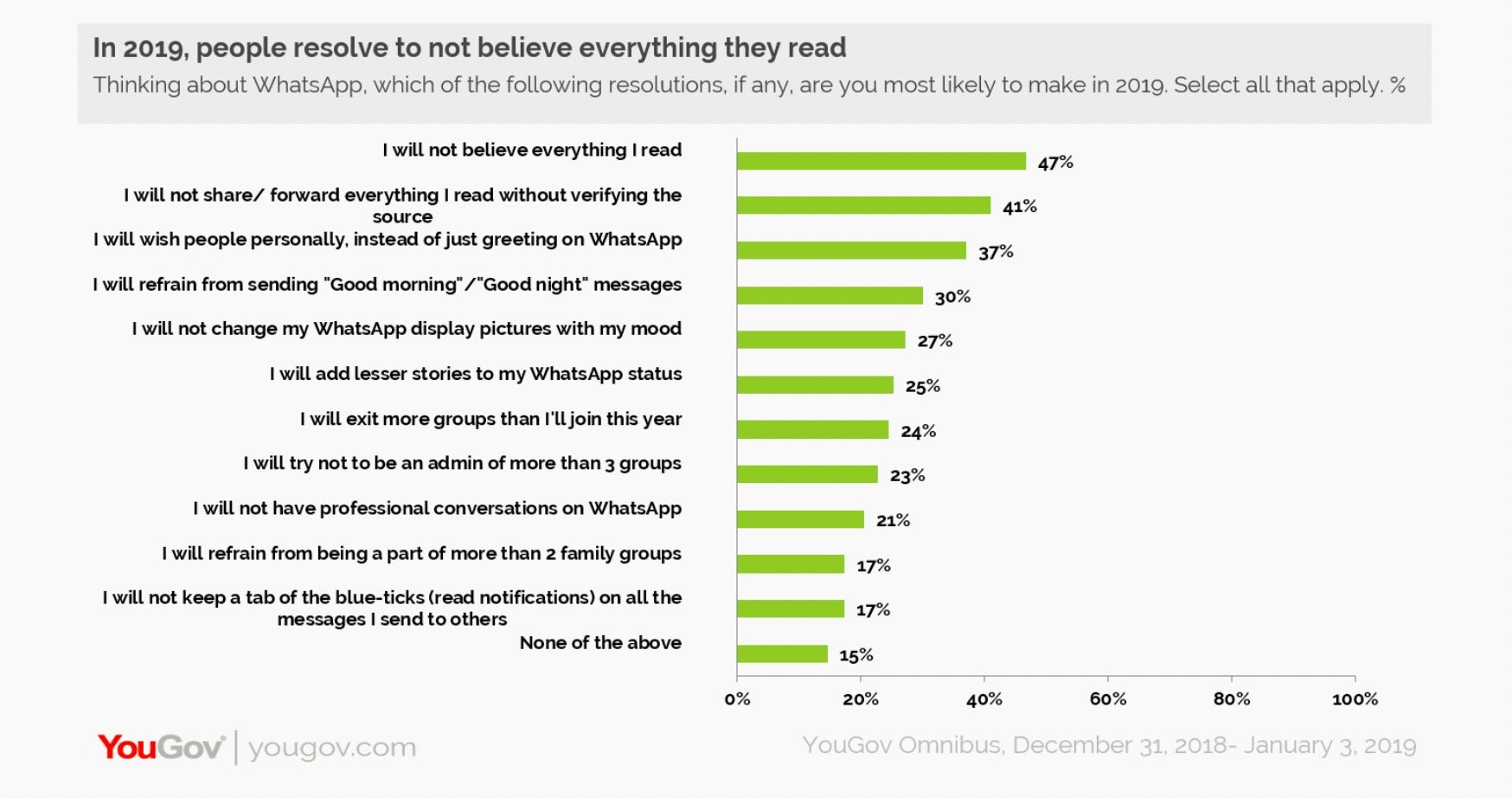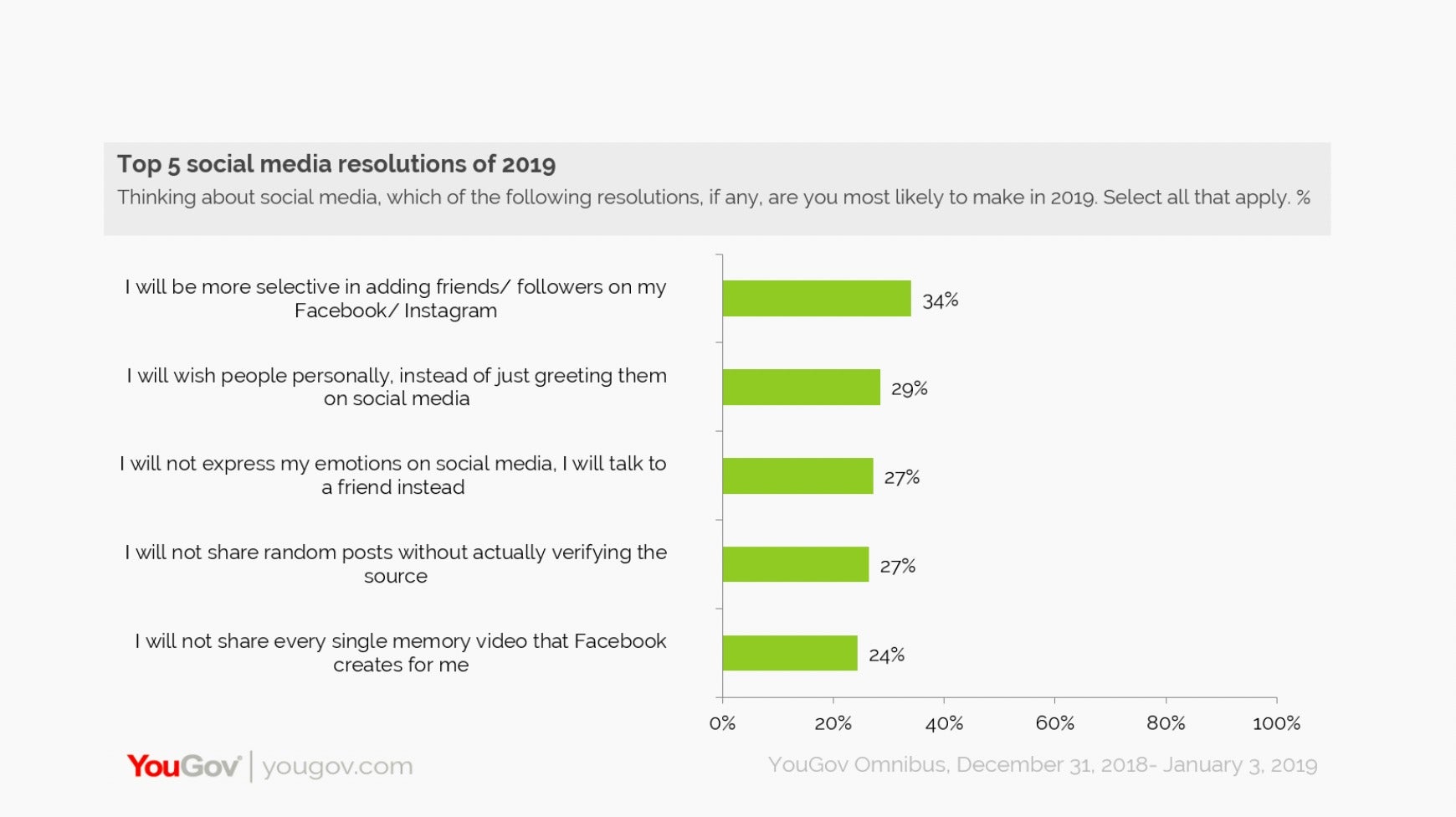Fake news-wary Indians are resolving not to trust WhatsApp in 2019
Indians are becoming increasingly aware of the dangers of fake news.


Indians are becoming increasingly aware of the dangers of fake news.
Almost half of the respondents in a survey by public-opinion research firm YouGov said they resolved on New Year’s Day not to believe everything they read on WhatsApp in 2019.
YouGov collected data for its study by conducting online surveys of 732 Indians, between Dec. 31 and Jan. 03.
Facebook-owned WhatsApp, the world’s most downloaded app in 2018, has about 250 million users in India. Its popularity prompted YouGov’s survey to ask respondents about WhatsApp-specific resolutions.
After “I will not believe everything I read,” the second-most popular WhatsApp-related resolution was also misinformation-related: Around 41% of respondents said they would not forward messages on WhatsApp without verifying the source. Other common resolutions involved avoiding being an administrator of more than three groups, and to refrain from sending “good morning” and “good night” messages—a popular practice in India that has puzzled Silicon Valley for a while.

The popularity of misinformation-related resolutions may be good news for India as well as for WhatsApp. The messaging app has a big fake news problem in the country; last summer, around 25 incidents of mob lynching were tied to rumours disseminated on the platform. In response to this, WhatsApp has instituted India-specific reforms, including a limit on the number of recipients one can forward a message to.
Ahead of the 2019 parliamentary elections, the app has even taken to prime-time airwaves to educate Indians about fake news, spending around Rs120 crore ($16.9 million) on television, radio, and print ads.
Somebody with a human touch
The YouGov survey also revealed that many Indians want to be less hooked to social media. Around 37% of respondents said they were “addicted” to their phones and 31% to Facebook.
Likely as a result of this, many of the reported 2019 resolutions involved cutting back on mobile-phone screen time: Up to 37% of the respondents resolved not to check their phones during meals and 35% while driving, while 34% said they would not sleep with their handsets next to them.
Other popular resolutions related to social media involved people vowing to increase the amount of real-life personal interaction, as compared to social media interaction, that they have with their friends.

Read Quartz’s coverage of the 2019 Indian general election here.